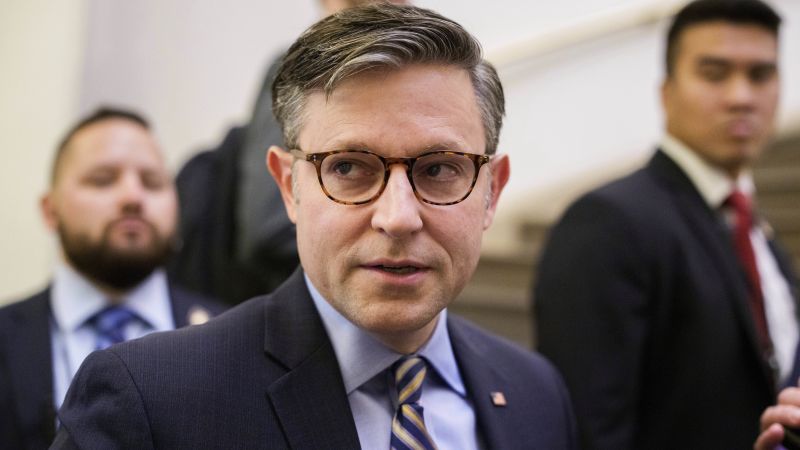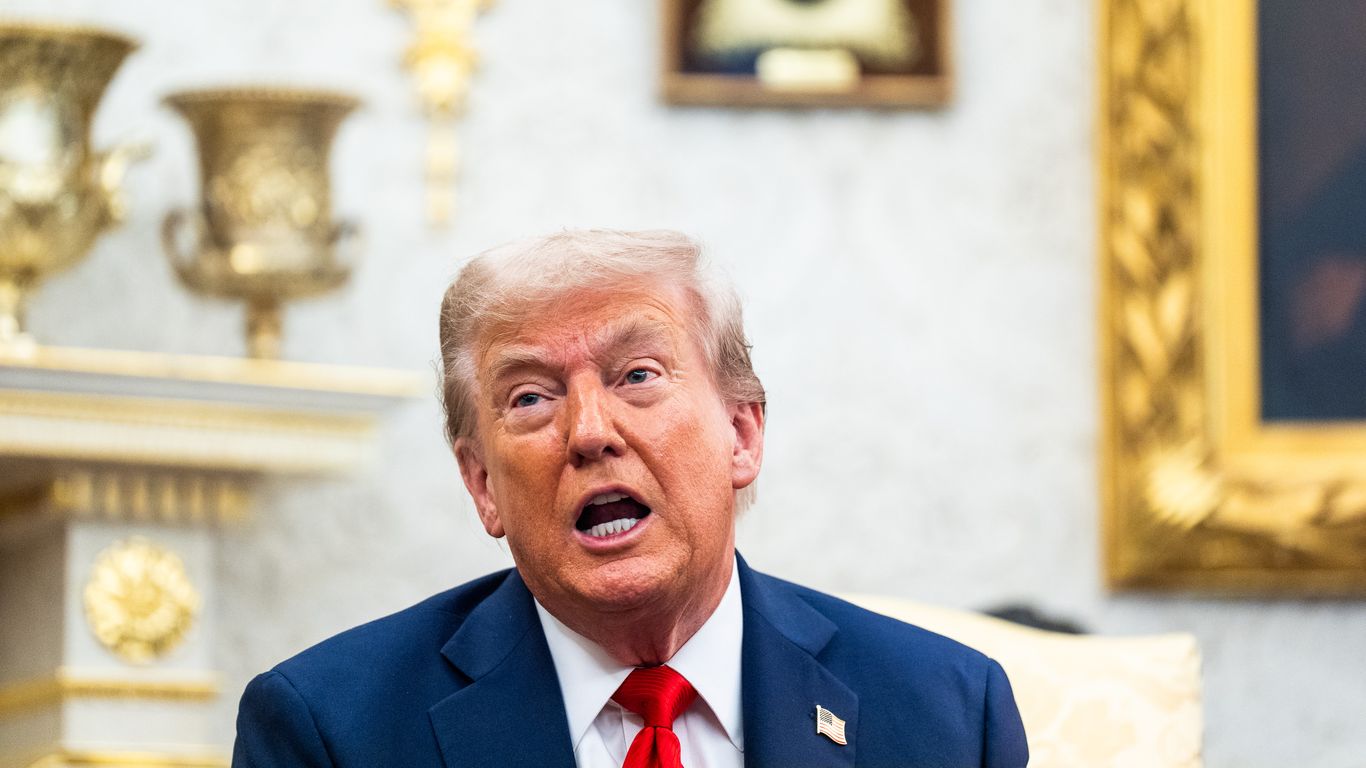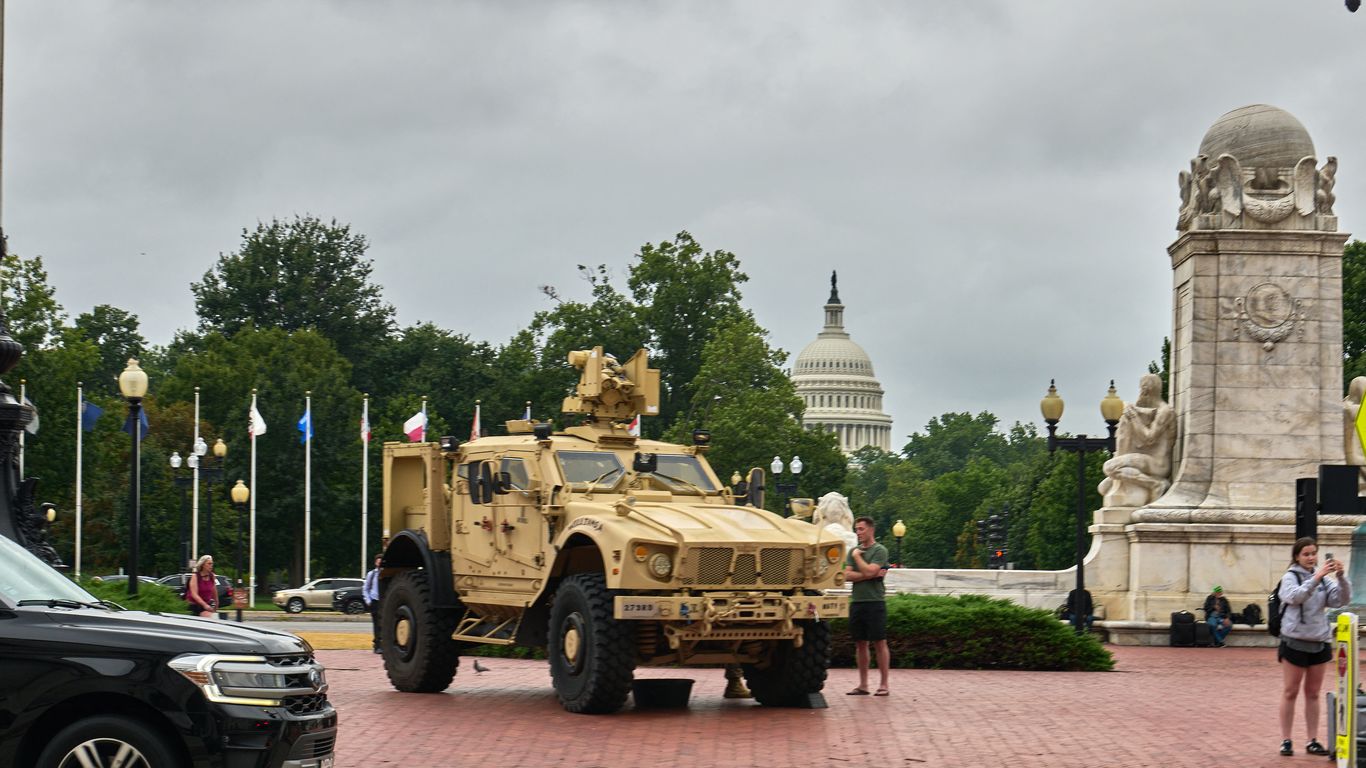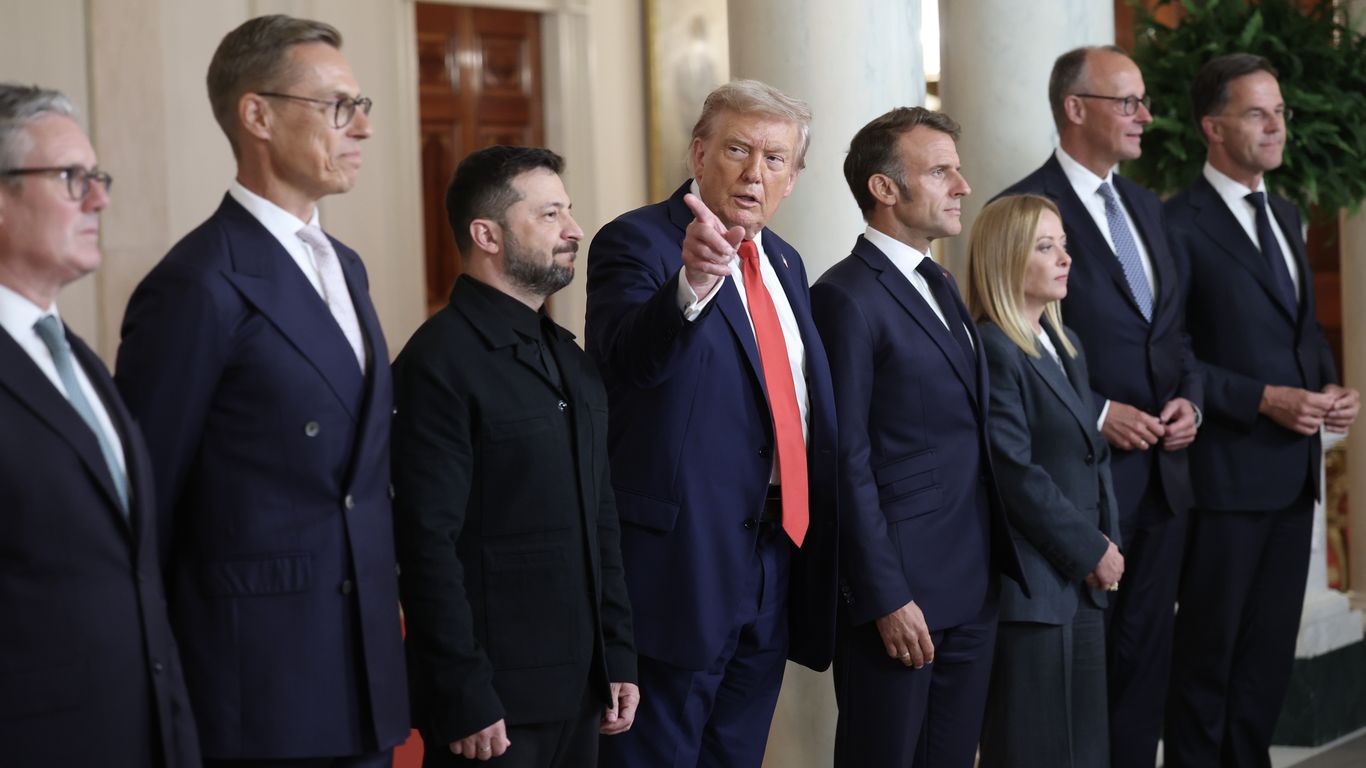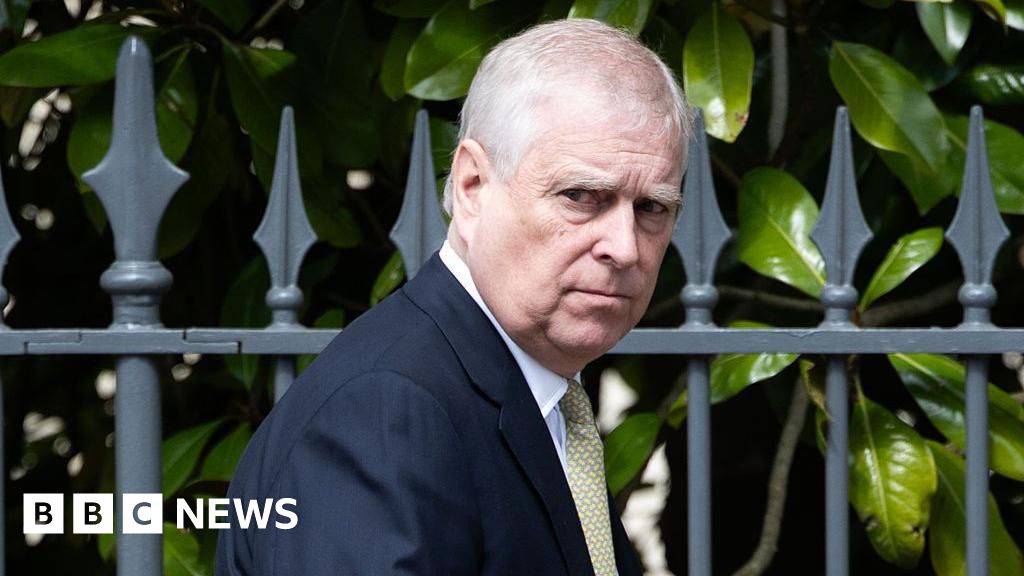Trump Warns Governor Hochul Over NYC Mayoral Race Endorsement
#trump #governor hochul #nyc mayoral race #endorsement #controversy

Introduction
In a recent development, President Donald Trump has issued a warning to Governor Kathy Hochul for endorsing Zohran Mamdani in the New York City mayor's race. Trump has hinted at potential financial penalties for this move, which could have far-reaching consequences for both the governor and the Democratic nominee. This development has stirred up further controversy in the already heated mayoral race, as the political landscape in New York City continues to evolve.
The Endorsement
Hochul's endorsement of Mamdani has raised eyebrows, as the governor is a member of the Democratic Party and Mamdani is running on the Working Families Party ticket. This move has been seen as a direct challenge to the Democratic establishment, and has been met with mixed reactions from both parties. While some have praised Hochul's support for a progressive candidate, others have criticized her for going against the Democratic nominee, Eric Adams.
The Financial Consequences
Trump's warning has added a new dimension to this race, as the former president continues to be a polarizing figure in American politics. The potential financial penalties could have a significant impact on the outcome of the race, as both candidates rely on financial support to fund their campaigns. This move could also have implications for future endorsements, as politicians may think twice before publicly supporting candidates outside their own party lines.
About the People Mentioned
Donald Trump
Donald John Trump, born June 14, 1946, in Queens, New York, is an American businessman, media personality, and politician. He graduated from the University of Pennsylvania’s Wharton School in 1968 with a degree in economics. In 1971, he took over his family’s real estate business, renaming it the Trump Organization, through which he expanded into building and managing skyscrapers, hotels, casinos, and golf courses. Trump gained widespread fame as the host of the reality TV show *The Apprentice* from 2004 to 2015, which helped establish his public persona as a successful entrepreneur. Trump entered politics as a Republican and was elected the 45th president of the United States, serving from 2017 to 2021. His presidency was marked by significant policy actions including tax cuts, deregulation, the appointment of three Supreme Court justices, renegotiation of trade agreements (notably replacing NAFTA with the USMCA), and a focus on immigration control including border wall expansion. He withdrew the U.S. from international agreements such as the Paris Climate Accord and the Iran nuclear deal, and engaged in a trade war with China. His administration’s response to the COVID-19 pandemic was criticized for downplaying the virus’s severity. Trump was impeached twice by the House of Representatives—first in 2019 for abuse of power and obstruction, and again in 2021 for incitement of insurrection—but was acquitted by the Senate both times. After losing the 2020 election to Joe Biden, Trump challenged the results, culminating in the January 6, 2021, Capitol riot. He remains a central figure in American politics, having won the 2024 presidential election and returned as the 47th president in 2025, continuing to promote policies aimed at economic growth, border security, and military strength[1][2][3][4].
Kathy Hochul
Kathy Hochul, born August 27, 1958, in Woodlawn, New York, is an American politician, attorney, and the 57th governor of New York since August 2021, marking her as the state's first female governor.[1][3][6] She earned a B.A. from Syracuse University and a J.D. from Catholic University in Washington, D.C.[3] Hochul's public service began on the Hamburg Town Board (1994–2007), where she supported small businesses.[2][4] She then served as Erie County deputy clerk (2003–2007) and clerk (2007–2011), during which she co-founded the Kathleen Mary House, a transitional home for domestic violence victims.[2] In 2011, she won a special election to represent New York's 26th congressional district as a Democrat, defeating Republican Jane Corwin despite a Republican-leaning district; she served one term (2011–2013) on the Armed Services and Homeland Security committees, advocating for the Affordable Care Act, tax reforms, women's rights, LGBTQ+ protections, and alternative energy.[1][2][3] She lost reelection in 2012 after redistricting.[2] Selected as running mate by Gov. Andrew Cuomo, Hochul served as lieutenant governor (2015–2021), chairing the Regional Economic Development Councils, co-chairing the Heroin and Opioid Task Force, leading the "Enough is Enough" campaign against campus sexual assault, and advancing paid family leave, child care access, and gender equity initiatives.[1][2][4][5] She visited all 62 counties annually to engage local communities.[7] Hochul ascended to governor after Cuomo's August 2021 resignation amid sexual harassment allegations, promising transparency and collaboration.[1] Elected to a full term in November 2022, she advanced stalled COVID-19 measures like vaccine mandates, renewable energy projects, abortion rights protections, gun safety laws, school aid, minimum-wage increases, and public transit funding.[1][4] Challenges included failed housing reforms and a rejected chief judge nominee in 2023, amid criticisms of developer ties.[1] As of recent accounts, she continues leading New York's economic recovery, infrastructure, and social policies.[4][7]
Zohran Mamdani
Zohran Kwame Mamdani is a New York State Assemblymember representing District 36, which includes Astoria and other Queens neighborhoods. He is notably the first South Asian man, the first Ugandan, and only the third Muslim to serve in the New York State Assembly. Mamdani is a democratic socialist focused on advocating for affordable housing, environmental justice, and equitable public services, aiming to improve the quality of life for working-class New Yorkers who face high rent burdens, pollution, and profiling[1][3]. Born in Uganda and raised in New York City, Mamdani graduated from Bowdoin College in 2014 with a degree in Africana studies. During college, he was politically active, cofounding a chapter of Students for Justice in Palestine and organizing a boycott of Israeli institutions. After college, he worked as a foreclosure prevention counselor in Queens and was involved in community organizing, experiences that motivated his entry into politics[3]. In 2020, Mamdani defeated a Democratic incumbent to win his Assembly seat and has since been re-elected twice. Among his key achievements, he co-created a pilot program for fare-free bus service in New York City and led a 15-day hunger strike in 2021 to protest predatory loans impacting taxi drivers, which resulted in $450 million in debt relief for them. He has also secured over $100 million in state funds to improve subway service and launched initiatives to combat environmental and social injustices in his district[2][3]. Currently, Mamdani is running for Mayor of New York City on a platform to lower the cost of living, improve public transit, and support working families, emphasizing government’s role in making life more affordable and dignified for all New Yorkers[2].
About the Organizations Mentioned
Democratic Party
## Overview of the Democratic Party The Democratic Party is the oldest continuing political party in the United States, with its roots tracing back to 1792 as the Democratic-Republican Party. Founded by Thomas Jefferson and James Madison, it initially advocated for a decentralized government and states' rights, opposing a strong central authority[1][2]. Over time, the party evolved, becoming more progressive and supportive of federal government intervention in social and economic affairs. ## History The modern Democratic Party was formally established in 1828, with Andrew Jackson's presidential campaign marking a significant turning point. Jackson's successful campaign expanded voting rights to all white men, regardless of land ownership, and further reduced federal power[3][6]. The party became deeply divided during the Civil War era, with Northern Democrats supporting limited slavery expansion and Southern Democrats advocating for its perpetuation[3][5]. Post-Civil War, the party became a stronghold for Southern whites who opposed Reconstruction[3]. ## Key Achievements The Democratic Party has played a pivotal role in shaping U.S. history: - **Civil Rights**: The party supported key civil rights legislation, including the Voting Rights Act and the Civil Rights Act of 1964. - **Social Programs**: Democrats have been instrumental in establishing and expanding social programs like Social Security, Medicare, and Medicaid. - **Economic Policies**: The party has often championed progressive economic policies, including labor rights and environmental protection. ## Current Status Today, the Democratic Party is a major force in U.S. politics, advocating for a strong federal government role in addressing social and economic issues. It emphasizes progressive policies on healthcare, climate change, and economic inequality[6]. ## Notable Aspects - **Symbolism**: The party's symbol, the donkey, originated from Andrew Jackson's opponents calling him a "jackass," which his supporters adopted as a mascot[6]. - **Diversity**: The party has become increasingly diverse, representing a wide range of socio-economic and
Working Families Party
The Working Families Party (WFP) is a progressive political organization in the United States, founded in New York in 1998. It emerged from the New Party, which aimed to push the Democratic Party further to the left using electoral fusion laws[1][3]. The WFP is known for its labor-community alliance, involving unions like the Communications Workers of America and Service Employees International Union[3]. **History and Achievements:** The WFP was instrumental in shifting control of the New York State Senate from Republicans to Democrats in 2008, leading to significant progressive legislation[2]. It has been successful in recruiting and electing candidates who support its agenda of higher wages, criminal justice reform, and reducing the influence of money in politics[5]. **Current Status:** Today, the WFP operates in multiple states, including New York, Connecticut, Oregon, and others[4]. It often runs candidates on its own ballot line or through Democratic primaries, focusing on both local and national elections[5]. The party is led by the Working Families National Committee, which guides its overall strategy[7]. **Notable Aspects:** - **Progressive Agenda:** The WFP advocates for social, racial, and economic justice, positioning itself as a force for progressive change in U.S. politics. - **Multiracial Movement:** It seeks to build a multiracial working-class movement, emphasizing inclusivity and grassroots engagement[6]. - **Electoral Strategy:** The party leverages electoral fusion laws to influence Democratic candidates and policies, often supporting candidates who align with its progressive values[1][5]. Overall, the Working Families Party is a significant player in U.S. progressive politics, known for its commitment to social and economic justice and its innovative electoral strategies.
